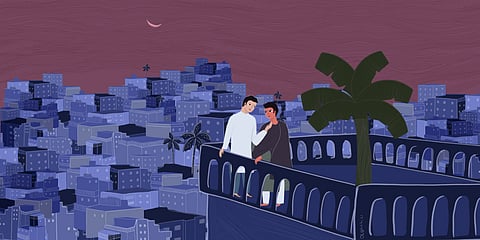(This article is part of our special series 'Rethinking Bangladesh'. You can read the editorial note to the series here.)
The LGBTI+ communities in Bangladesh face oppression on multiple fronts. These range from the colonial-era Penal Code Section 377 that criminalises all sexual activity that falls outside the procreative, heterosexual norm, to botched government efforts at recognising hijra and transgender peoples, to the persistent threat of violence from religious extremists, to police harassment and violence, to deepening economic inequality, to growing digital surveillance that increases the risk of even online organising and socialising. In 2014, for instance, the Ministry of Social Welfare announced job positions for 14 hijra community members, but a 2015 official medical test disqualified 12 of the candidates, despite their longstanding legitimacy within the hijra community, on the grounds that they were "fully male".
In 2016, religious extremists murdered LGBTI+ activists Mahbub Rabbi Tonoy and Xulhaz Mannan (co-founder of LGBTI+ magazine Roopbaan). After more than five protracted years of trial, a Bangladeshi court sentenced six members of the militant group to death, though the mastermind remains at large. In a statement in September 2021, Roopbaan (now a community-driven online platform) has pointed out that this verdict does not ensure justice for LGBTI+ communities. On the heels of Xuljaz and Tonoy's murders, the police raided the Chhayaneer Community Center in Keraniganj and arrested 27 men suspected of being gay in 2017 (though they were eventually charged with drug possession under the 1990 Narcotics Control Act). By then, the identities of the arrested were already revealed on mainstream media. The aftereffects of these events reverberate beyond Bangladesh as LGBTI+ rights activists who fled the country continue to face precarities associated with the asylum processes and living in exile.

